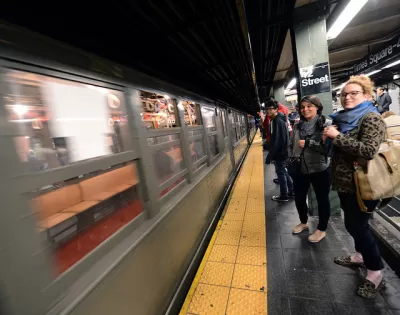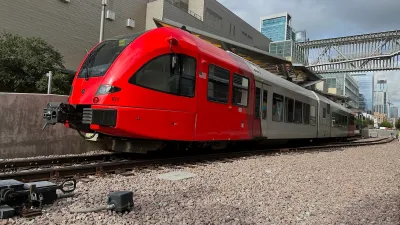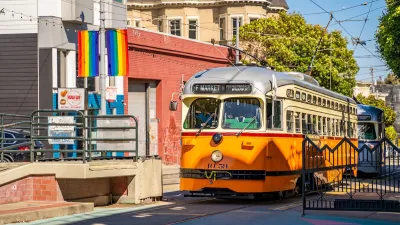One writer argues that improving transit in major cities would boost local economies and prove that positive change is possible.

Writing in Governing, Aaron M. Renn lays out an argument for prioritizing public transit reform in big cities. “Not only is it a genuinely critical need, but it’s an area where tangible progress can be made and the public will see it right away,” Renn writes. In big cities such as New York, Chicago, and Boston—even in the age of remote work—transit “enables the dense, large-scale agglomeration of workers that gives central business districts the highest economic output in the country.”
“The problems are serious, but transit has a number of characteristics that make it a great place to focus governance energy on fixing.” First, Renn writes, it’s not reinventing the wheel: there are many global examples of functional, efficient public transit systems to draw lessons from. At the same time, “Most of the states where these systems are located have little if any anti-transit sentiment,” making transit reform a more easily achievable goal than other, more politicized issues.
For Renn, improving transit is about more than making transportation more effective for urban residents. Transit reform could help restore public faith in government and “create momentum” for solving much thornier challenges.
FULL STORY: Why We Can Fix Big-City Transit — and Why We Need To

Alabama: Trump Terminates Settlements for Black Communities Harmed By Raw Sewage
Trump deemed the landmark civil rights agreement “illegal DEI and environmental justice policy.”

Planetizen Federal Action Tracker
A weekly monitor of how Trump’s orders and actions are impacting planners and planning in America.

Why Should We Subsidize Public Transportation?
Many public transit agencies face financial stress due to rising costs, declining fare revenue, and declining subsidies. Transit advocates must provide a strong business case for increasing public transit funding.

Understanding Road Diets
An explainer from Momentum highlights the advantages of reducing vehicle lanes in favor of more bike, transit, and pedestrian infrastructure.

New California Law Regulates Warehouse Pollution
A new law tightens building and emissions regulations for large distribution warehouses to mitigate air pollution and traffic in surrounding communities.

Phoenix Announces Opening Date for Light Rail Extension
The South Central extension will connect South Phoenix to downtown and other major hubs starting on June 7.
Urban Design for Planners 1: Software Tools
This six-course series explores essential urban design concepts using open source software and equips planners with the tools they need to participate fully in the urban design process.
Planning for Universal Design
Learn the tools for implementing Universal Design in planning regulations.
Caltrans
Smith Gee Studio
Institute for Housing and Urban Development Studies (IHS)
City of Grandview
Harvard GSD Executive Education
Toledo-Lucas County Plan Commissions
Salt Lake City
NYU Wagner Graduate School of Public Service




























